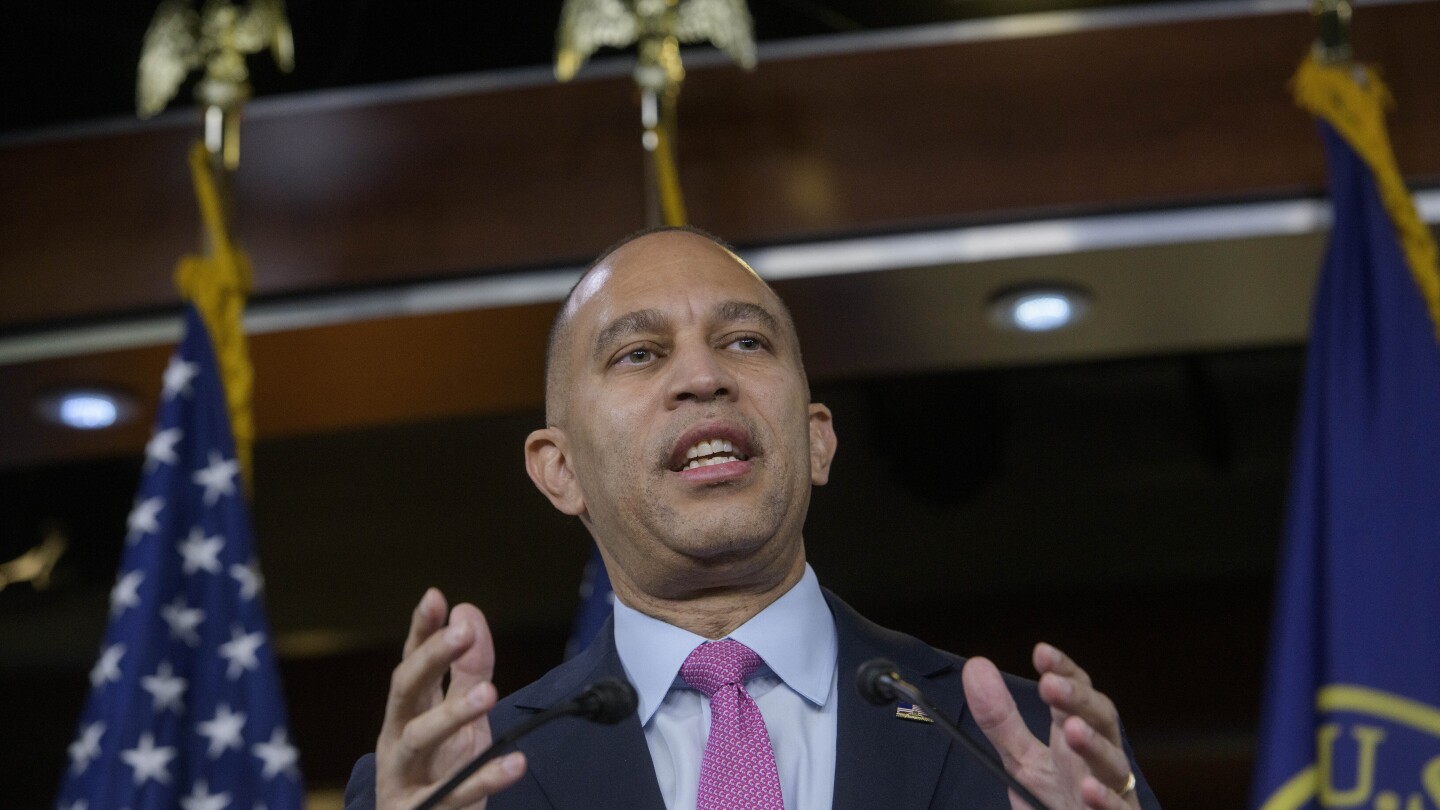Divided We Stand: The Democratic Dilemma on Immigration Amid Trump’s Influence
As the 2024 elections loom on the horizon, the Democratic Party finds itself in a precarious position regarding immigration policy. This issue, once a rallying point for unity, has now become a source of internal conflict, heavily influenced by the controversial legacy of former President Donald Trump. The phrase “Divided We Stand” has never felt more apt as the party grapples with differing perspectives on how to address immigration in a way that aligns with both progressive ideals and the realities of American politics.
The Historical Context of Immigration Policy
Immigration has long been a contentious subject in U.S. politics, with debates tracing back to the founding of the nation. The post-9/11 era ushered in heightened scrutiny of immigrants, culminating in Trump’s hardline stance during his presidency. His administration’s policies, such as the travel ban on predominantly Muslim countries and the separation of families at the border, have left deep scars on the national conscience.
The Democratic Party traditionally champions more lenient immigration policies, advocating for a path to citizenship for undocumented immigrants and emphasizing the humanitarian aspects of immigration. However, Trump’s influence has shifted the landscape, leading to a more polarized electorate. Many Democrats now find themselves torn between maintaining progressive values and appealing to a more conservative base that is increasingly wary of immigration.
The Internal Conflict within the Democratic Party
The Democratic Party encompasses a spectrum of beliefs regarding immigration, from the progressive wing, which calls for sweeping reforms, to moderates who advocate for more pragmatic solutions. This rift has manifested in various ways:
- Progressive Vision: Progressive Democrats push for policies like the Green New Deal and comprehensive immigration reform that includes pathways to citizenship for all undocumented immigrants.
- Moderate Approach: Moderates argue for a more cautious approach, emphasizing border security and the need for bipartisan cooperation to enact sustainable immigration policies.
- Centrist Concerns: Centrists express concern over the electoral implications of a far-left immigration stance, fearing it may alienate swing voters in critical states.
This internal division poses a significant challenge for the party as they prepare for the 2024 elections. The question remains: can the Democratic Party reconcile these differing views on immigration, or will they remain divided in the face of an increasingly polarized electorate?
Trump’s Lasting Impact on Immigration Discourse
Trump’s presidency has had a lasting impact on how immigration is discussed in political circles. His rhetoric often painted immigrants as threats to American jobs and safety, a narrative that resonated with a substantial segment of the population. This shift has forced Democrats to reconsider their messaging on immigration, as they seek to counteract the fears and anxieties that Trump’s campaign capitalized on.
Moreover, Trump’s influence extends beyond rhetoric; his policies have left a legacy that the Biden administration has struggled to navigate. While Biden promised a return to more humane immigration practices, the reality of managing border security, asylum claims, and public opinion has created a complicated dynamic.
The Road Ahead: Navigating the Immigration Dilemma
As the election approaches, the Democratic Party faces the daunting task of crafting an immigration strategy that can unite its base while appealing to undecided voters. Here are several potential paths forward:
- Emphasize Common Ground: Leaders within the party could focus on policies that appeal to both progressives and moderates, such as comprehensive immigration reform that addresses border security while providing pathways to citizenship.
- Highlight Economic Contributions: Democrats can make a compelling case for the economic benefits of immigration, showcasing how immigrants contribute to the economy, fill labor shortages, and drive innovation.
- Focus on Humanitarian Values: A return to emphasizing humanitarian concerns can help the party reclaim the moral high ground, appealing to voters’ empathy and compassion.
Engaging in community outreach and fostering dialogue with constituents can also help bridge the gap between differing viewpoints within the party. By listening to the concerns of their constituents, Democrats can better tailor their policies to meet the needs of a diverse electorate.
The Importance of Unity in the Face of Division
Ultimately, the phrase “Divided We Stand” serves as both a warning and a call to action for the Democratic Party. As they navigate the complexities of immigration policy amid Trump’s lingering influence, unity will be essential for success in the upcoming elections. A fragmented party risks alienating vital voter blocs and ceding ground to Republican narratives.
By fostering internal discussions, prioritizing listening to constituents, and crafting inclusive policies, the Democratic Party can work towards presenting a united front on immigration. This approach not only strengthens the party but also reinforces its commitment to the values of justice, equity, and humanity that have traditionally defined its platform.
Conclusion: A Path Forward
As the 2024 elections approach, the Democratic Party must confront its immigration dilemma head-on. The influence of Trump has undeniably reshaped the landscape, but it is within the party’s power to redefine the narrative. Emphasizing unity, compassion, and pragmatic solutions can help Democrats navigate this challenging terrain. The stakes are high, and the path forward may be fraught with challenges, but with a clear vision and a commitment to collaboration, the Democratic Party can emerge stronger and more cohesive.
Ultimately, the party’s ability to address the immigration dilemma will not only define its electoral prospects but also shape the future of America’s immigration policy for years to come. By finding common ground and uniting around shared values, the Democratic Party can rise to the occasion and fulfill its promise as a champion for all Americans.
See more BBC Express News

